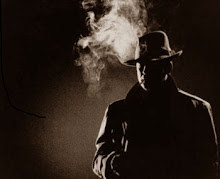So, Dear Reader, yesterday I mentioned the recent purchase of the Panasonic HC-V250 camcorder I picked up for a surveillance job and you might recall one of my gripes was the lack of being able to stamp the date and time directly onto the footage.
Well, luckily for me, and possibly you, there are a number of options out there for nifty tools to do this, post-shooting. Yeah, I know, technically this is altering the original video (except that it isn't as the original footage isn't changed) and you should be supplying your Client with the original SD card as well as the DVD you created anyway.
Here are three such tools...
Visual AVCHD Time Stamp (vATS) - Only for Windows 7 or Windows 8 users, vATS offers a number of options in placement, transparency and style of date and/or time stamp. Demo available. Full versions is US$19.50 (no support) or US$24.50 (email support).
I found it easy to use but it is limited to just adding date and time; no custom text.
Super DVdate - Again, only for Windows users. Super DVdate I found to be a lot more finnicky that vATS to set up and get working, but it allows for more customisation of display and does allow you to add custom text as well as date and/or time. Demo available. Full version is priced at US$29.95.
DVMP Pro - Windows only. I haven't actually tried this one yet but it looks to have a lot of features not really necessary for my purposes like GPS geotagging etc. However, like Super DVdate, it also allows for custom text and a whole range of options in regards to displaying date and/or time. Demo available. Full version is priced at US$79.99, making it the most expensive option of the three.
Also, a useful feature in both vATS and Super DVdate is the ability to have the sound removed in the processed file.
If anyone users similar software on the Mac, please let me know and I'll add the links.
Friday, May 09, 2014
Tools for burning date/time to video footage
Posted by Anonymous Investigator at
04:54
Labels:
PI toolbox
Subscribe to:
Post Comments (Atom)


I have never given my originals of anything vidoes or recordings, or images - only copies, so as to maintain the original production, for we are the ones whose integrity is at stake, especially if we give our personal integirty to someone else, we jeopardize our own reputation if someone were to alter our original works.
ReplyDeleteI also maintained the originals in case something got lost, as well. Never give away your original recordings - whether video, audio, or still digital images, even old fashioned negatives, for which I would also keep the receipts from developing...though most people don't use such nowadays, but if so, the other option remains to have the developer can provide two originals, so to speak.
Best wishes,
JO
In my mind, it comes down to who I did the work for. These days, I'm usually working for other PI agencies so have no hesitation in giving them the original SD card (every job gets a new card) although I guess someone could always question whether the chain of custody of evidence was in fact broken if said evidence was couriered to instructing agency...
Delete